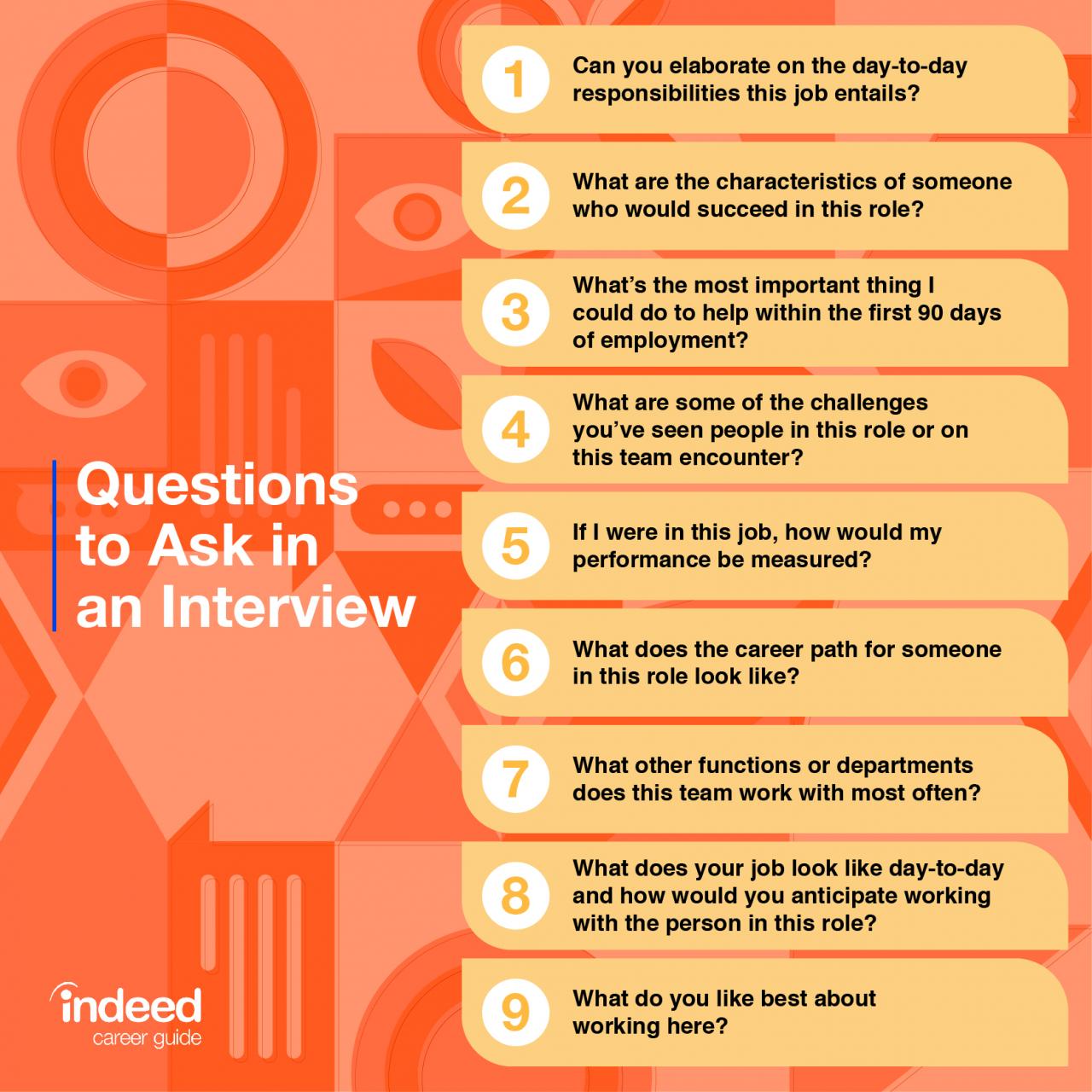31 questions to ask in an interview – Get ready to ace your next interview with our exclusive guide to 31 essential questions. Whether you’re a seasoned pro or a first-timer, this insider’s playbook will equip you with the knowledge and confidence to navigate the interview process like a boss.
Prepare to impress, uncover hidden opportunities, and land your dream job!
1. Introduction
An interview is a crucial conversation between an interviewer and a candidate, where the interviewer evaluates the candidate’s suitability for a particular role. Asking thoughtful questions during an interview is essential for both parties to gain valuable insights and make informed decisions.
By asking insightful questions, interviewers can assess a candidate’s skills, experience, motivations, and cultural fit. This enables them to make well-rounded hiring decisions that align with the company’s needs and goals.
2. Types of Interview Questions: 31 Questions To Ask In An Interview
Open-Ended Questions
These questions allow candidates to provide detailed and nuanced responses. They begin with words like “tell me,” “describe,” or “explain.”
- Example: “Tell me about your experience managing a team of engineers.”
Closed-Ended Questions, 31 questions to ask in an interview
These questions require specific and concise answers, often in the form of “yes” or “no.” They begin with words like “do,” “have,” or “can.”
- Example: “Do you have experience using Agile methodologies?”
Behavioral Questions
These questions focus on past experiences and behaviors that provide insights into a candidate’s work style and problem-solving abilities.
- Example: “Tell me about a time you successfully resolved a conflict with a team member.”
3. Preparation for Asking Questions

Thorough preparation is key to asking effective questions in an interview. Interviewers should:
- Research the company and the specific role to understand its requirements and culture.
- Review the candidate’s resume and LinkedIn profile to identify areas of interest and potential questions.
- Brainstorm a list of questions that align with the company’s needs and the candidate’s experience.
4. Crafting Effective Questions
Effective questions are clear, concise, and thought-provoking. Interviewers should:
- Use open-ended questions to encourage detailed responses.
- Ask probing questions to gain deeper insights into a candidate’s experiences and motivations.
- Follow-up questions to clarify or expand on a candidate’s answers.
- Example: “Could you provide more details about your role in that project?”
5. Non-Verbal Cues and Active Listening
Non-verbal cues and active listening are essential for effective communication in an interview.
- Interviewers should maintain eye contact, nod, and smile to show engagement.
- Active listening involves paying attention to the candidate’s responses, asking clarifying questions, and summarizing key points.
- Non-verbal cues can convey interest, empathy, and respect, creating a positive and collaborative interview experience.
6. Ethical Considerations
Interviewers must consider ethical implications when asking questions.
- Respect the candidate’s privacy and avoid asking personal questions that are unrelated to the job.
- Be aware of potential biases and ensure that questions are fair and unbiased.
- Follow legal guidelines and avoid asking questions that could lead to discrimination.
Ending Remarks
Remember, the key to a successful interview lies in asking thoughtful questions that demonstrate your genuine interest and preparation. Embrace the power of inquiry, connect with your interviewer, and showcase your passion for the role. With our 31 questions as your secret weapon, you’ll leave a lasting impression and secure the job you deserve.
FAQ Guide
Can I ask about the company’s culture during an interview?
Yes, asking about the company’s culture shows your interest in the organization and its values. It also allows you to assess if the company is a good fit for your own personality and career goals.
Is it appropriate to ask about salary expectations in an interview?
While it’s generally not advisable to bring up salary expectations too early in the interview process, you can inquire about the salary range for the position once you have a better understanding of the role and responsibilities.
What are some creative questions I can ask to stand out in an interview?
Consider asking about the company’s plans for innovation, their approach to employee development, or any unique challenges or opportunities they foresee in the industry. These questions demonstrate your forward-thinking and strategic mindset.